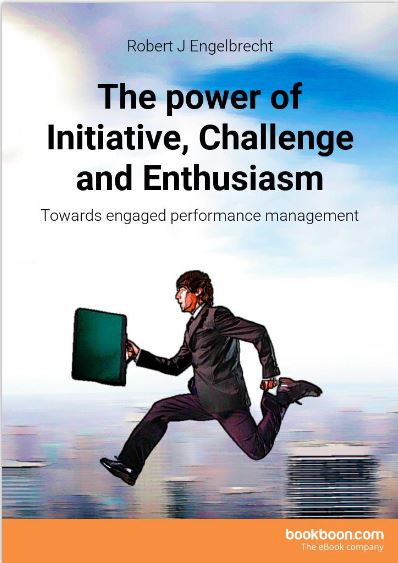3 Essential Ingredients for Employee Engagement

Every company would like to have employees who are self-driven and engaged. But can you as an employer do anything to foster this desired behavior? Yes, of course you can. There’s a perfect recipe for it, and all you need are three ingredients: proactivity, challenge, and dedication.
Enabling people to be proactive
While proactive behavior isn’t something that you can simply ask people to do – being proactive means doing something without external motivators – it is possible to maintain a corporate culture where proactive behavior is encouraged:
- Dealing with mistakes and failure:
Many people who aren’t proactive are afraid of doing or saying something wrong, of leaving a bad impression. If you have a corporate culture where colleagues and leaders appreciate different viewpoints and unusual approaches to solving problems, even if they don’t end up being useful, you will go a long way in removing one of the most common constraints for proactive behavior. - Providing autonomy and responsibility:
Give people space and freedom to achieve objectives in their own fashion. In other words: Let them make their own mistakes, learn from them, and share their experiences. This includes making them responsible for, say, the success of a project – and it requires managers who are able to trust their direct reports. - Responding positively to initiative:
If you as a manager provide positive feedback to those who show proactive behavior, it is more likely that others will follow suit and lose any inhibitions they may have.
Adding challenges to everyday work
One of the reasons why people like to play games or to do sports is that they enjoy challenges that they know they can overcome – but that, at the same time, they don’t have to fear negative personal consequences if they don’t win every time. Games are fun and motivating because it is very rewarding when you succeed at something you failed at before. At work, it’s not really that much different. And you as a manager or HR expert can help people embrace challenges:
- Setting goals:
Make it part of your corporate culture never to be satisfied with the current state of things, whether it’s your products / services or your internal processes. Encourage people to look for potential improvements in every area of their work. - Having a transparent vision:
Do your employees know what your company’s major strategic goals are? A common purpose is important because it is a challenge in itself: It is a goal everyone in the company strives towards. - Leading by example:
If you are manager with direct reports, you can encourage people to challenge themselves by showing them how you do it – and by telling them about your successes as well as your failures.
Fostering dedication
Why are some people dedicated to their work? Two aspects are important prerequisites for dedication at work:
- A job that is a good fit:
If the tasks match the skill set and interests of the job holder, work feels more rewarding because people get to play their strengths and do what they enjoy doing. This leads to higher dedication – and better performances. - A sense of meaningfulness:
If work feels meaningful and employees feel that they are making a difference and contribute to the success of the company, they will do their jobs with more dedication. A good company vision and common goals can give an overall meaning to every job in the organization. A clear picture of why someone’s specific position is important, can additionally provide a very individual sense of meaningfulness. If managers are able to communicate this importance to their direct reports convincingly, it can have a significant positive impact.
Now you have the ingredients and the recipe – it’s up to you now to use them deftly to make a wonderful dish of employee engagement. Maybe you don’t get it right the first time – but that’s okay: Making mistakes is a good thing, remember?
For further reading, download Robert J Engelbrecht’s eBook The power of Initiative, Challenge and Enthusiasm
You also might find these two articles from this eBook interesting:
- Employee Appraisals: Are They Any Useful? (Spoiler: Yes.)
- 6 Ways to Stop Your Employees from Being Too Engaged





